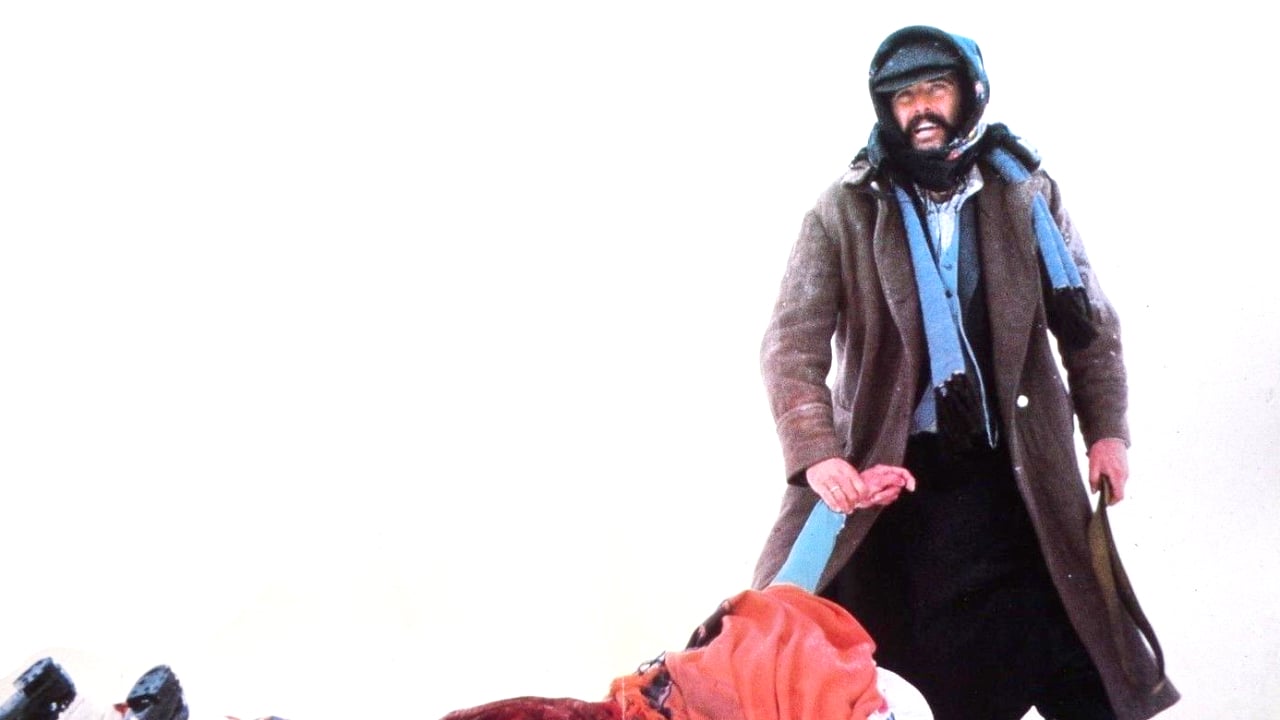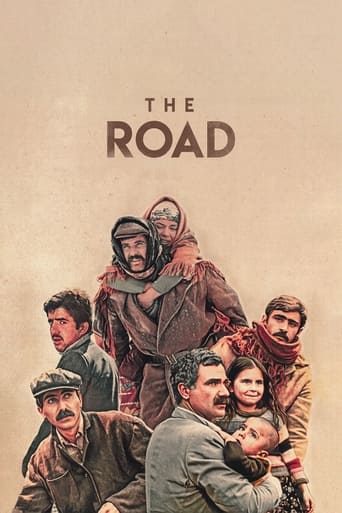

In Yilmaz Güney's extraordinary Turkish odyssey (filmed by Gören from his script and detailed instructions while he was in jail), five prisoners are allowed a week's parole to journey home. In many ways it's a story about the tragedy of distances: the geographical and historical ones that still separate Turkey, and the distances imposed upon people by a military state and by a heritage that still expects husbands to punish by death wives taken in adultery. A kind of distance, too, makes this a film of the highest order. Its homesickness, for freedom above all, is very particular. Güney can't go home, and completed the film in exile. This perspective gives great clarity to his picture of the state of the nation, a state in suspense where something has to change, which gathers complexity and shifts effortlessly into universal allegory. The film's poetry, its combination of sound and image especially, has an unconscious innocence no longer available to most European and American narratives, and it is inspired by an enormous compassion for the suffering people endure at each other's hands in a world where the strong pick upon the weak, the weak upon the weaker.
... View MoreI have seen this movie three times so far with intervals of a few years and got amazed more every time. I am Turkish and I was a teenager during the time period portrayed in the movie. I can say with great confidence that those days were presented with a great accuracy in many ways. It gives me an opportunity to evaluate the events of that period. The director (Serif Goren not Yilmaz Guney because Yilmaz Guney was a fugitive during the time the movie was shot) does a great job capturing the mosaic of Turkish culture during the trips of the 5 prisoners on leave for a week. The trip starts from Istanbul - from north-west and ends in the south-east. Editing job was not so great but it still kept the continuity of the story. On the other hand dubbing was terrible - perhaps the only bad thing about the movie - still you have to be a native Turkish speaker to see this flaw. I think the biggest contribution of Yilmaz Guney to this film was writing the major part of the script and producing this great film. A few facts: Yilmaz Guney was a fugitive who shot a judge during his trial. So, He was not a political prisoner. He wasn't a great actor but he was a good screen writer. There is not a city called Kurdistan in Turkey there never was. The people shown in the movie are Turkish citizens. People of Turkey are not just Kurds and non-Kurds there are tens of other ethnicities live in Turkey and they make the Turkish nation as a whole. It's amazing to see some people are still judging a whole nation by just seeing a movie.And one goof: The guy in the ferry was drinking RAKI - the famous Turkish liquor- however during dubbing it was referred to as brandy.
... View MoreI am completing a thesis on Turkish cinema. I have seen many Turkish films, and I think this is definitely one of the five best and certainly the best one of its' era though the underrated "Polizei" which "Yol"'s co-director Serif Goren helmed is right up there. "Yol" is amazing for many reasons. I have heard some amazing Hollywood back stories of how films like "MASH" and "Apocalypse Now" were hellish shoots. But, none of them matches what the filmmakers did on this project. "Yol" was secretly filmed, and the entire cast, which included box office icon Tarik Akan risked being blacklisted. The film was subsequently banned in Turkey until 1992, and it was not shown theatrically there until 1999. It is a scathing indictment of political and social oppression in Turkey in the early 1980s. Symbolism is used throughout the film, with birds representing freedom, horses representing virtue, and women representing oppression. Many Westerneners have labeled Yilmaz Guney, Turkey's best known director who envisioned "Yol" from his prison and then while in exile, a champion of feminist ideals. But, if one sees some of his earlier film like "Canli Hedef/Live Target" they might be in for a surprise (that film features an off-camera rape of a 10-year old girl). I like Guney's films but I agree with Serif Goren's assessment that his contributions to "Yol" were completely overlooked. Goren proved to be a capable director in his own right, and his film "10 Kadin/10 Women" is perhaps the essential film for expressing ideals which are sympathetic to feminism- a movement that I sympathize with in terms of Turkey, but am neutral towards in the West. "Yol" also deals with Kurdish suppression. One of the more poignant moments in the film comes when Halil Ergun's character comes to back to his hometown Diyarbakir (in Eastern Turkey) on the train during his prison leave. He comments how strange it is to be back home. The central theme of the film is that the oppressive elements of prison life are evident just as much on the outside. Personally, I think Turkey has made significant progress in recent years. It is a shame that except for Michael Moore, Barbara Kopple, and Tim Robbins, very few American film makers take these kinds of risks that Guney and Goren did with "Yol." In my view, the more recent Turkish film "Distant" has surpassed "Yol" as the best Turkish film ever made, but this is still a magnificent artistic achievement which can be merited as a classic in terms of international cinema.
... View MoreYilmaz Guney's film "Yol" is one of the best movies that Turkish film industry has ever made. There are several reasons for that. The most important one is it says "Turkey is a prison weather you are in prison or not.". Since you have to wear uniforms in your school life, since you have to be a member of army for twelve months after 18, and since you have to say that I am Turkish, you can call yourself as a prisoner.Yilmaz Guney reflected these problems of Turkey in a very realistic way. He saw his country as a beautiful place to live, but he was also responsible for his people to show the reality of Turkey. But it is completely wrong to say that he is ashamed to live in Turkey.
... View More